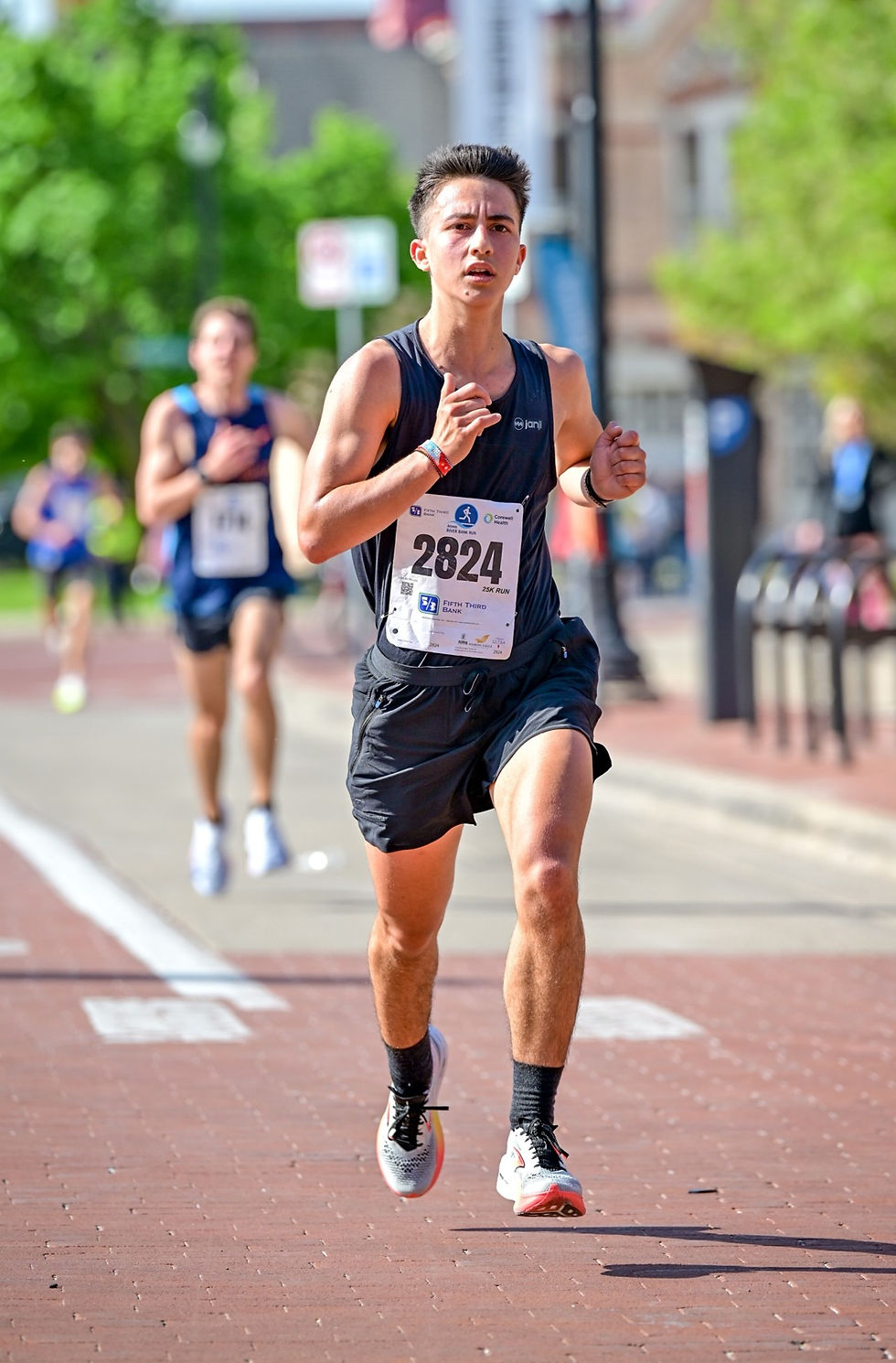Run Towards the Impossible
- charlie4243
- Sep 27, 2025
- 3 min read

By Kha Yang
What’s your impossible? And how are you holding yourself accountable? The word impossible feels everywhere today. Our country wrestles with polarization where diverging perspectives collide, and conflicts drown out connection. As a diversity executive working in a time when diversity is under attack, it’s common to hear how the divide is too wide and the road is too hard. Still, I’d like to believe that impossible doesn’t mean unmovable. Each of us carries the ability to bridge divides, one choice, one step, one conversation at a time.
In 2003, I achieved what felt impossible by finishing my first running marathon. I wasn’t a runner, far from it. It all started on a cold fall day the previous year. I was cheering on runners when I saw a wave of participants in wheelchairs and people of all ages, pushing past every limit. That moment made me realize how privileged I was to be able-bodied while choosing to stay on the sidelines. Their courage inspired me to act. I picked up a book on how non-runners could become runners. A year later, I showed up at the starting line and crossed the finish line. That race taught me something I carry with me to this day. It taught me that my mind can be stronger than my body, and with the right mindset, I can keep my dedication steady, enabling me to overcome obstacles that I once thought were impossible. This transformative experience changed my understanding of perseverance, resilience, and dedication, and has served as a reminder that the real race is about moving forward, even when the odds are against you.
Over the past five years, my running has been inconsistent. There were long periods when I didn't run at all. Like many organizations facing the Great Resignation, staff shortages, and the lingering effects of post-pandemic isolation, I struggled to find the motivation to commit to marathon training. However, in early September this year, I saw social media posts from runners panicking over injuries and trying to transfer their bibs before the deadline. Suddenly, I felt that same jolt I experienced in 2003. There I was, healthy, capable, and able, yet I was sidelining myself again. This reminded me that sometimes the hardest part isn’t the race itself. It’s deciding to step back in, even when excuses seem easier. Therefore, running a marathon with imperfect preparation feels fitting for a time when many are navigating uncertainties, reevaluating their individual purpose, and tackling societal challenges.
So, I’ve decided to rechallenge myself with my own version of the impossible. Recently, I secured a bib transfer for the Twin Cities Marathon. Though I’ve run before, a month of training stretches me in new ways. On October 5th, I won’t just complete 26.2 miles. I’ll be running toward those walls that seem too high and too heavy. Once I move them, I can move others. And with any stumble, this will only make me stronger for the next climb.
I won’t be alone. Around 30,000 runners, including 9,200 in the marathon, will take to the course during the event weekend, each carrying their own story and purpose. I invite you to come cheer on the runners. As you uplift them with words of encouragement, a clap, or a high-five, perhaps being present might ignite the impossible in you. Because when we choose to show up for ourselves and for each other, we begin to make the impossible possible.
Kha A. Yang works in higher education and believes in the power and potential of every individual. Inspired by her parents’ lessons on the importance of education and community, she is committed to helping others grow and succeed. Running keeps her grounded in self-care, while her two young daughters remain her guiding compass, inspiring her to strive for a world where every child can reach their highest potential. Kha is a lifelong learner who enjoys traveling, reading, and exploring the arts.


